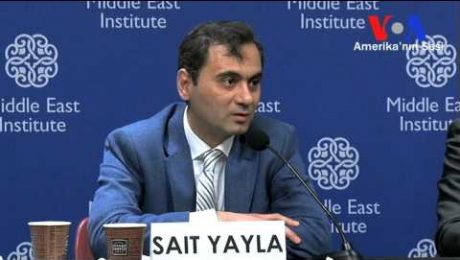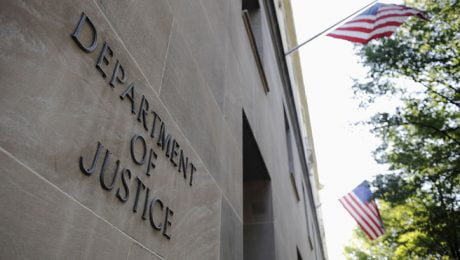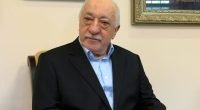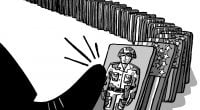Keyword: North America

Gulen suspect testifies before US Congress on recent coup attempt
An alleged member of the Fetullah Gulen organization was invited on Wednesday to speak to a congressional panel on Turkey, a stunning move that could exacerbate tensions between Ankara and Washington. Ahmet Sait Yayla was added to the original list of speakers to address the House Foreign Affairs Subcommittee on Europe, Eurasia and Emerging Threats.

US House Foreign Affairs Subcommittee: Charges against Gülen not credible
US House Foreign Affairs Subcommittee Chairman Dana Rohrabacher said during a hearing titled “Turkey after the July Coup Attempt” in the House Foreign Affairs Committee on Wednesday that the Turkish government’s claims against a US-based Turkish scholar for masterminding the July 15 coup attempt lack substantial evidence and were not credible.

US Unlikely to ‘Speed Up’ Gulen’s Extradition to Turkey
Turkey has formally requested that the U.S. government extradite Turkish cleric Fethullah Gulen from the state of Pennsylvania where he has lived in self-imposed exile for 17 years. Turkey is pushing for quick extradition, suggesting that U.S.-Turkish relations are at stake. But the burden of proof rests squarely on Ankara, and if it cannot sufficiently prove its accusations against Gulen, the extradition request will be refused.

Ambassador says US having difficulty in seeing clear criterion in anti-Gülen operations
Speaking to a group of reporters in Istanbul on Friday, Bass said although the Turkish government insists that the anti-coup measures it has taken against followers of the Gülen movement are proportionate, it is difficult see that the Turkish government is taking its actions based on a clear criterion. Bass said the US was having difficulty in assessing whether the measures are proportionate and reasonable.

Why Erdogan Snubbed Biden
What is going on in Turkey right now reminds me very much of the last few scenes in the first Godfather movie, where Michael Corleone is settling all of the Family’s outstanding business. Corleone is seen in church renouncing “Satan and all his works” while he participates in the baptism of his nephew—shortly before garroting the baby’s father, Carl.

The cleric, the coup and the conspiracy
In Pennsylvania, Gülen and his aides scrambled to denounce the coup attempt as it unfolded. “As someone who suffered under multiple military coups during the past five decades, it is especially insulting to be accused of having any link to such an attempt,” Gülen said in a statement, referring to Turkey’s spotty democratic history. The U.S. also was quick to condemn the coup attempt, but not quick enough for many in the Turkish government and media.

Obama is the real turkey in this scenario
Erdogan also made a statement, calling the president of the United States “Barack,” before launching into one of his usual self-serving rants. Typical of a violent Islamist appropriating the moral high ground, the Turkish president agreed that fighting terrorism is of utmost importance. But the “terrorists” to whom he mainly referred were Gulen and the Kurds.

The Process Behind Turkey’s Proposed Extradition of Fethullah Gülen
By publicly campaigning for Gülen’s immediate extradition—before a formal request had been submitted—Turkish officials reinforced the idea that the United States is somehow protecting Gülen or resisting the extradition process. That is not true. There will be critics of any eventual decision, just as there are critics of the delay in reaching a decision. Whatever the result, both governments should communicate the decision with consideration for the long-term relationship and should operate on the assumption that the other is acting in good faith.

Wife of Calgary imam held in Turkey on coup allegations, says he still has no lawyer
The wife of a Calgary imam being held in prison near Istanbul, Turkey says she was pleased to hear that Prime Minister Trudeau recently spoke to Turkish officials about the matter. Rumeysa Hanci says her husband Davud had nothing to do with the attempt to overthrow the government. She says the family is still trying to get a lawyer for him.

Embrace Relief Worldwide Qurban (Feast of Sacrifice) Campaign
As part of their Hunger Relief program, Embrace Relief administers qurban organizations all over the world to bring joy to the table of people in need, while helping Muslims take care of their religious obligations. In 2015, qurban donations have been distributed amongst countries such as Bangladesh, Haiti, Ivory Coast, Kenya, Madagascar, Mexico, Nigeria, Rwanda, South Africa, Tanzania, and the United States. This year, qurban donations will be distributed to those in need in the United States, Latin America, Africa, and Asia.

Erdogan may keep winning, but it wont’ do Turkey any good
I don’t believe Ankara is ever really going to stray from its partnership with the U.S., because Turkey simply cannot afford it. The coup — failed though it was — has left the formerly expanding Turkish economy gasping. Credit-rating agencies have lowered the nation’s stock, and the purging of coup conspirators, both real and imagined, has left tens of thousands of crucial private- and public-sector positions empty. Economic growth, meanwhile, is expected to dip.

U.S. schools are indirectly linked to preacher, often well-regarded
Even before the revolt, this network was already in Erdogan’s sights. Critics say Gulen gets payments from supporters doing contract work on the schools or from “donations” made by Turkish instructors brought to the U.S. on special visas to teach at them, charges he has rejected. Several charter chains thought to be related to the Gulen movement have been investigated by local authorities for misusing taxpayer dollars, but the inquiries haven’t resulted in charges of wrong doing.

U.S. State Department, Citing Security, Suspends [Fulbright] Teaching Program in Turkey
In the wake of the coup attempt, President Recep Tayyip Erdogan of Turkey has conducted widespread purges of perceived adversaries. As a result, every university dean in Turkey was forced to resign. Some experts have raised questions about whether the university system will be able to function. The ripple effects to American academics are just starting to emerge.

Henri Barkey: Why Is Turkey Accusing Me of Plotting a Coup?
Soon after the coup was defeated, my colleagues and I became the targets of sensationalist conspiracy theories promulgated by Turkey’s pro-government press. The accusations ranged from organizing the coup on behalf of the C.I.A. to setting up communication links for the plotters and, most implausibly, bringing a convicted murderer from California into Turkey to engage in evil deeds.


















